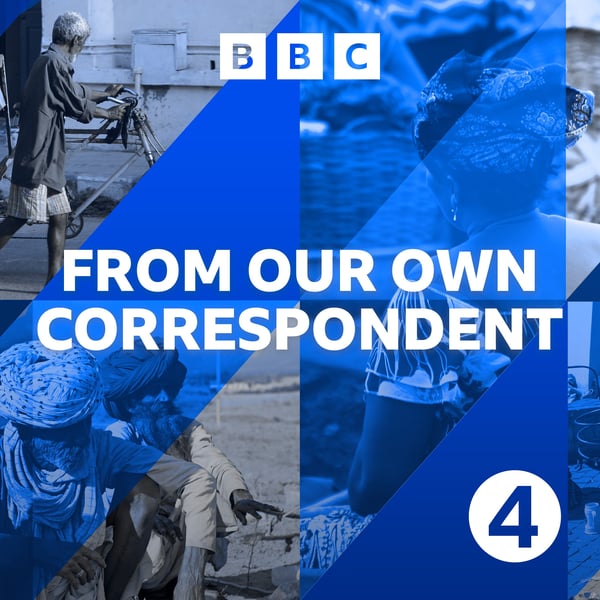Distorting the Past
From Our Own Correspondent
BBC
4.4 • 1.3K Ratings
🗓️ 1 February 2020
⏱️ 29 minutes
🧾️ Download transcript
Summary
Transcript
Click on a timestamp to play from that location
| 0:00.0 | BBC Sounds, music radio podcasts. |
| 0:05.0 | Good morning. |
| 0:06.3 | Scorched Earth, blood red skies and homes reduced to ashes. |
| 0:10.4 | We hear of the aftermath of Australia's bushfires. |
| 0:14.0 | Ireland is going to the poles, and it seems the Emerald Isle is anything but green when it comes to cows and sheep. |
| 0:21.0 | We sample life in Antarctica, which appears to have the world's most |
| 0:25.5 | over-qualified rubbish collectors and need a plumber, everyone does, but in Jordan |
| 0:32.0 | they now have the female plumber unblocking you bends and the patriarchal |
| 0:36.5 | mindset. |
| 0:38.4 | Much thought this week on borders on nationality and how we get on with our neighbours, even at the commemorations to mark the |
| 0:45.9 | liberation of Auschwitz. Over a million people were murdered by the Nazis, 90% of them Jews, but also Poles, Roma and Sinti and Soviet prisoners of war. |
| 0:58.1 | 200 survivors travelled to Poland with leaders of 60 countries. United in remembering, |
| 1:04.0 | but 75 years on from the end of the death camp, |
| 1:08.0 | says Adam Easton, |
| 1:09.0 | Russia and Poland still disagree about their respective roles in World War II. |
| 1:15.6 | One of the survivors who spoke at the Brick Gatehouse of Auschwitz-Birkenau was Marian Turski, a 93-year-old Polish Jewish man. He was transported to Auschwitz from the Wood ghetto, |
| 1:27.0 | aged 18 in August 1944. After taking part in the forced Nazi evacuation of the camp, the death march, |
| 1:35.2 | he weighed a little over five stone and was on the verge of starving to death. |
| 1:40.2 | Now 75 years on, when meeting people he said he realized they were a little weary of hearing about the war and the holocaust. |
| 1:49.0 | No, he would not talk more about his own suffering, but he did still have an important message to convey. |
| 1:56.1 | Do not be indifferent when any minority faces discrimination, he said. |
| 2:01.1 | Do not be indifferent in the face of lies about history or when the past is |
... |
Please login to see the full transcript.
Disclaimer: The podcast and artwork embedded on this page are from BBC, and are the property of its owner and not affiliated with or endorsed by Tapesearch.
Generated transcripts are the property of BBC and are distributed freely under the Fair Use doctrine. Transcripts generated by Tapesearch are not guaranteed to be accurate.
Copyright © Tapesearch 2025.

